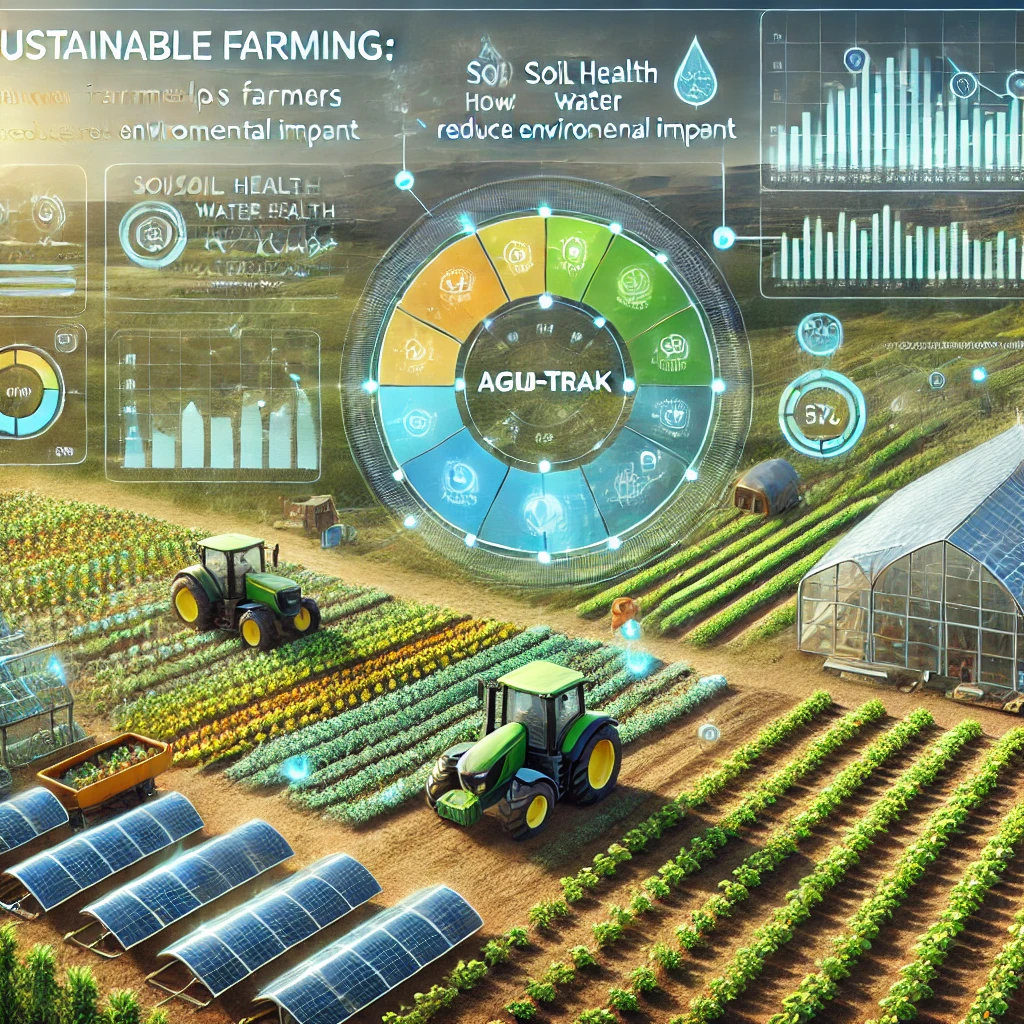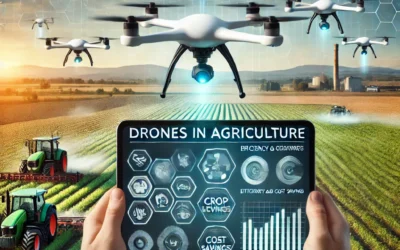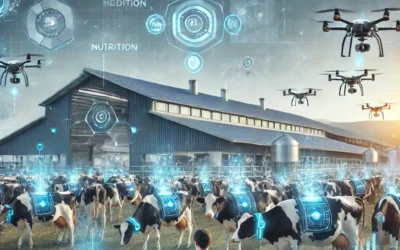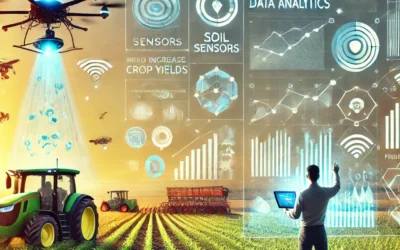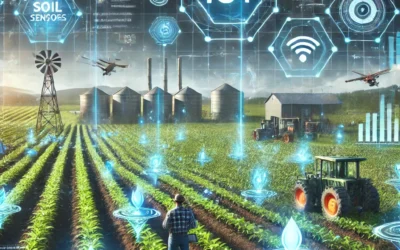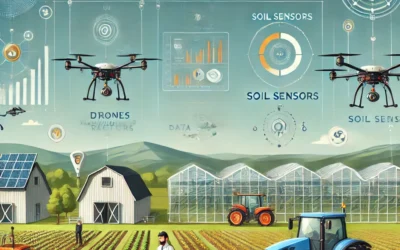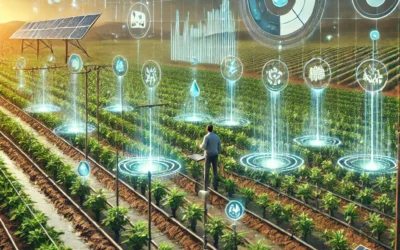Sustainability has become a key focus in agriculture, as farmers work to balance the growing demand for food with the need to protect natural resources. Sustainable farming practices aim to reduce the environmental impact of agriculture by conserving water, reducing chemical use, and promoting soil health. Agri-Trak, a farm management platform, is helping farmers achieve these goals by providing data-driven tools and insights that enable more sustainable decision-making. In this article, we will explore how Agri-Trak is supporting sustainable farming practices.
1. Optimizing Resource Use
One of the core principles of sustainable farming is using resources efficiently. This includes water, fertilizers, and energy. Agri-Trak’s data analytics tools help farmers monitor resource usage in real-time, providing insights into where inputs can be reduced without compromising crop yields. For example, by tracking soil moisture levels and weather conditions, farmers can adjust their irrigation schedules to avoid over-watering, reducing water waste.
Similarly, Agri-Trak allows farmers to implement precision fertilization practices. By analyzing soil nutrient levels and crop requirements, the platform helps farmers apply fertilizers only where they are needed, minimizing chemical runoff and preventing over-fertilization. This not only reduces costs but also protects the environment by reducing nutrient pollution in nearby water sources.
2. Promoting Soil Health
Healthy soil is the foundation of sustainable farming, as it supports plant growth, retains water, and sequesters carbon. Agri-Trak provides farmers with tools to monitor soil health and implement practices that promote long-term soil fertility. For example, the platform tracks soil organic matter levels, pH balance, and nutrient availability, helping farmers make informed decisions about crop rotation, cover cropping, and tillage practices.
Agri-Trak also supports the adoption of regenerative farming practices, such as no-till farming, which reduces soil disturbance and promotes the buildup of organic matter. By maintaining healthy soil, farmers can increase crop yields while reducing the need for chemical inputs, leading to more sustainable farming systems.
3. Reducing Chemical Usage
Chemical inputs, such as pesticides and herbicides, can have negative effects on the environment, including soil degradation, water pollution, and harm to beneficial insects. Agri-Trak helps farmers reduce their reliance on these chemicals by providing data on pest and weed pressure. By analyzing crop health data and identifying areas of infestation, farmers can take targeted action, applying treatments only where necessary.
In addition, Agri-Trak supports integrated pest management (IPM) strategies, which combine biological, cultural, and chemical control methods to manage pests in an environmentally friendly way. For example, the platform can track the presence of beneficial insects, such as ladybugs or predatory mites, which help control pest populations naturally. This reduces the need for chemical pesticides and supports biodiversity on the farm.
4. Conserving Water
Water conservation is a critical aspect of sustainable farming, especially in regions prone to drought or water scarcity. Agri-Trak’s smart irrigation tools allow farmers to monitor soil moisture levels and weather conditions in real-time, ensuring that crops receive the right amount of water without waste. By adjusting irrigation schedules based on data, farmers can reduce water consumption and improve the efficiency of their water use.
Agri-Trak also supports the use of drip irrigation systems, which deliver water directly to the roots of plants, reducing evaporation and runoff. This targeted approach to irrigation not only conserves water but also promotes healthier crops and higher yields.
5. Tracking and Reporting Sustainability Metrics
Agri-Trak enables farmers to track their sustainability performance over time by providing detailed reports on resource use, crop yields, and environmental impact. This data helps farmers assess the effectiveness of their sustainability practices and identify areas for improvement. By tracking key sustainability metrics, such as water use efficiency, soil health, and chemical inputs, farmers can make more informed decisions about how to reduce their environmental footprint.
Agri-Trak’s reporting tools also allow farmers to share their sustainability achievements with consumers, retailers, and regulators, demonstrating their commitment to environmentally responsible farming. As demand for sustainably produced food continues to grow, this transparency can help farmers build stronger relationships with customers and access new markets.
Conclusion
Agri-Trak is helping farmers reduce their environmental impact by providing data-driven tools and insights that promote sustainable farming practices. From optimizing resource use and promoting soil health to reducing chemical inputs and conserving water, Agri-Trak supports farmers in their efforts to create more sustainable and resilient farming systems. As the agricultural industry faces increasing pressure to produce food sustainably, platforms like Agri-Trak will play a critical role in helping farmers meet these challenges.

